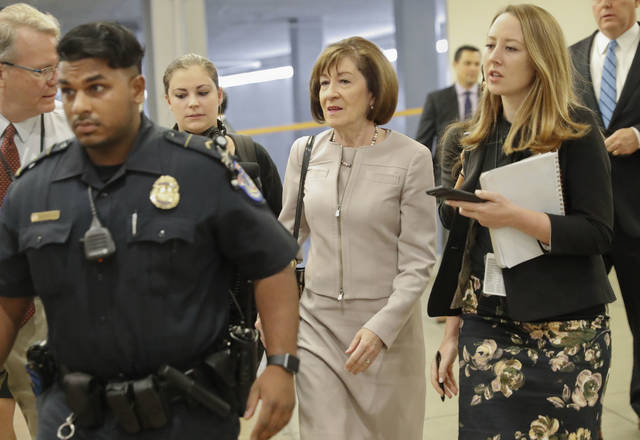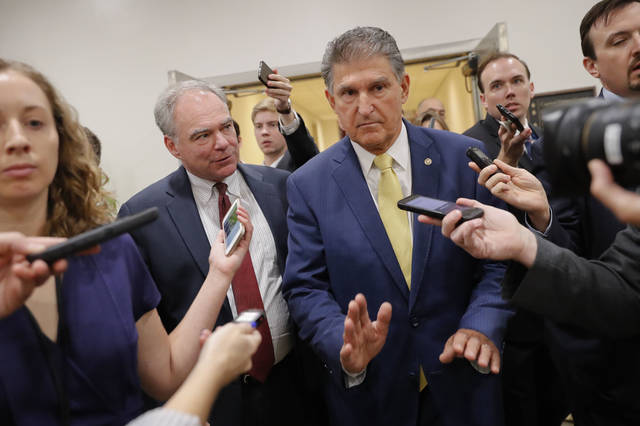WASHINGTON — Republican Sen. Susan Collins of Maine said Friday she will vote to confirm Brett Kavanaugh’s Supreme Court nomination, all but ensuring that a deeply riven Senate will elevate the conservative jurist to the nation’s highest court despite allegations that he sexually assaulted women decades ago.
The dramatic Senate floor announcement by perhaps the chamber’s most moderate Republican ended most of the suspense over a tortuous, election-season battle that had left Kavanaugh’s fate in doubt for nearly a month after the first accusation against him. It all but assured a victory for President Donald Trump’s quest to move the Supreme Court rightward, perhaps for decades, and a satisfying win for Senate Majority Leader Mitch McConnell, R-Ky., and the GOP’s conservative base.
The Senate’s showdown roll call confirmation vote is expected Saturday afternoon.
With Republicans controlling the chamber by a narrow 51-49, Collins’ “yes” vote essentially assured a minimum of 50 votes for Kavanaugh. Republican Lisa Murkowski of Alaska, a fellow moderate and friend of Collins, has indicated that she will vote no, calling Kavanaugh “a good man” but maybe “not the right man for the court at this time.”
Vice President Mike Pence planned to be available Saturday in case his tie-breaking vote was needed.
Kavanaugh’s path to the court seemed unfettered until mid-September, when Christine Blasey Ford accused him of drunkenly sexually assaulting her in a locked bedroom at a 1982 high school gathering. Two other women later emerged with sexual misconduct allegations from the 1980s, all of which Kavanaugh has denied.
By Friday afternoon, the sole remaining undeclared senator was Joe Manchin, a West Virginia Democrat. Manchin, who faces a competitive re-election next month in a state Trump overwhelmingly carried in 2016, voted to advance Kavanaugh’s nomination in a key procedural vote earlier Friday.
Sen. Jeff Flake, R-Ariz., who’s repeatedly battled Trump and will retire in January, said he’d vote for Kavanaugh’s confirmation “unless something big changes.”
In the procedural ballot, senators voted 51-49 to limit debate, defeating Democratic efforts to scuttle the nomination with endless delays. That was the day’s first GOP victory in the spellbinding battle that’s been fought against the backdrop of the #MeToo movement and stalwart conservative support for Trump.
Deeply coloring the day’s events was a burning resentment by partisans on both sides, on and off the Senate floor.



